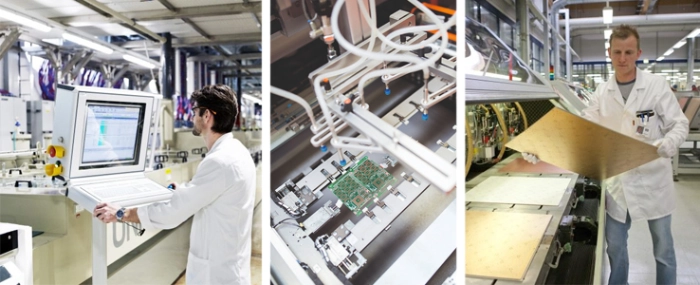
How can Europe save its PCB industry?
The EIPC is urging people to sign an open letter of urgency to government leaders, calling for explicit assistance to the European PCB industry – including but not limited to direct financial aid, access to internationally competitive energy pricing, facilitating bank guarantees in support of capital expenditure, favourable loans, and tax breaks.
The pandemic highlighted the importance of semiconductors and EU politicians scrambled to find a solution to bring back manufacturing to Europe. However, Brussels failed to realise the vital role played by PCBs. The PCB plays an integral part in nearly all electronic products – so even if Europe manages to establish a healthy level of domestic semiconductor production, the question still stands – where will these semiconductors go?
“We believe that urgent action is required by our European Governments to support our domestic PCB production and mitigate the real risk of it shrinking below critical mass and becoming unviable,” the EIPC writes in the open letter, urging readers to take a stand.
So, how can you help?
- Firstly, advocate to local governments, and help raise awareness of the vital role that PCBs play in supplying the European defence and aerospace sectors.
- Request local procurement of PCBs to OEMs, especially in high-end and high-reliability applications and emphasise that PCB functionality and reliability require close interaction between designer and manufacturer.
- Assist in lobbying the EU to remove punitive tariffs on imported raw materials that disadvantage domestic production and encourage the importation of higher-value PCBs from outside of the EU.
The Chip Acts are the reaction of the EU and the US realising the risk associated with their reliance on China for semiconductors. The bipartisan Protecting Circuit Boards and Substrates Act of 2023 was introduced in the US – aiming to finish the job the CHIPS Act started by incentivising investment in the domestic PCB industry. The bill is viewed as a necessary follow-on to the CHIPS Act – without a trusted, reliable domestic source of PCBs and substrates, computer chips don't connect to end-use electronic devices. In Europe however, there is no equivalent.
The math is quite simple, for the EU Chip Act to succeed with its mission statement, fostering technological sovereignty and mitigating security risks of an unstable supply chain – PCBs need to be included.
As previously reported, both US and European PCB manufacturers have over the last couple of decades been outcompeted and outpaced by Asian PCB manufacturers. In 2000, Europe's domestic PCB manufacturing accounted for 16% of the global total; by 2022, this figure had dropped to 2.3%. Back in 2000, Europe had 555 PCB manufacturers, in 2015 this number had been reduced to 247 – in 2021 it had dropped to 171.
Given the current trajectory of the European PCB industry, Evertiq has invited Alun Morgan, President of EIPC, to participate as a keynote speaker at the Evertiq Expo in Berlin, Germany on June 20, 2024, to talk about the dire situation that the industry faces.
In his presentation, he will review macroeconomics highlighting current and upcoming global risk factors before focusing on the European PCB market and trends. European Purchasing Managers' Indices will be discussed along with technology and market trends before concluding with global and European business outlook.



